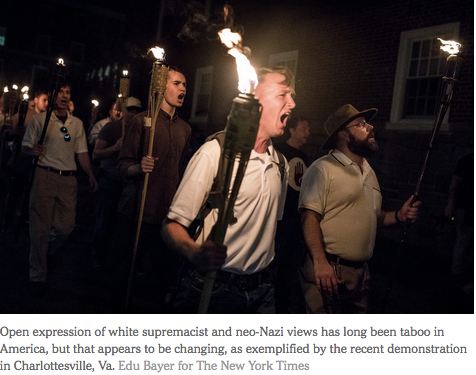Today in the United States, sweeping majorities of the public say they support fair housing laws and the ideal of integrated schools. Nine in 10 say they would back a black candidate for president from their own party, and the same say they approve of marriage between blacks and whites. That last issue has undergone one of the greatest transformations in polling over the last 50 years. In 1960, just 4 percent of Americans approved.
More than a triumph over private prejudice, these numbers reflect changing social norms. The country hasn’t extinguished racism. But society — universities, employers, cultural institutions, the military — has made clearer over time that people who hold racist views had better nurse them off in the corner.
But these norms may be fraying. Since the last presidential election, and particularly since white supremacists rallied this month, unmasked, in Charlottesville, Va., the line between acceptable and ostracized views has started to become less stark. When President Trump declined to condemn white supremacists more forcefully, he ignited a fight that at its core is about how we define norms in America: Who gets to be part of civil society, and whose views belong on the fringe?
That fight is being waged by opposing protesters across the country and by pundits daily on TV. The president’s critics fear that he is inviting white supremacists out of the corner, helping ideas that have become widely reviled in America to be redefined as reasonable opinions — just part of the discussion.




